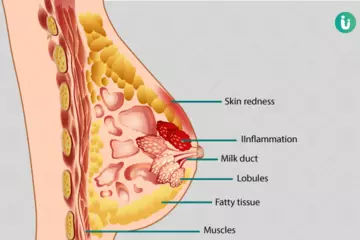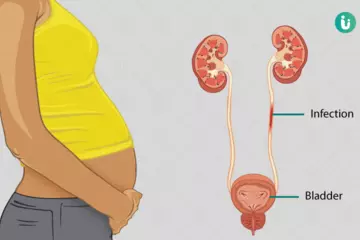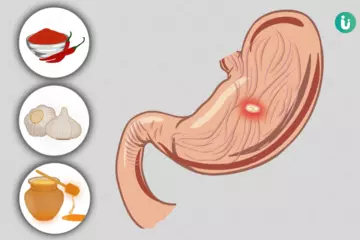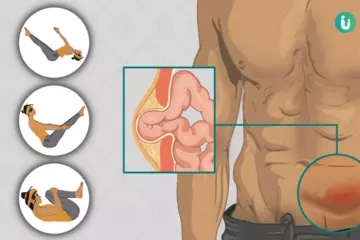What is ectopic pregnancy?
Ectopic pregnancy is a condition in which the fertilised egg implants anywhere outside the uterus (womb), generally in one of the fallopian tubes or rarely in the ovary, cervix or inside the abdomen. The fallopian tube is a long tube attached to the uterus that carries eggs from the ovaries to the uterus. It cannot hold the growing fertilised egg during and can get stretched and rupture eventually. The embryo does not usually survive and the condition can be life-threatening for the mother, thus early treatment is necessary.
The worldwide incidence of ectopic pregnancy is around0.25-2%, and it is likely to happen in one out of every 161 pregnancies.
What are its main signs and symptoms?
During a normal pregnancy, women generally experience symptoms like nausea and vomiting. Symptoms of ectopic pregnancy start to appear within 4-10 weeks of pregnancy.
Common symptoms include:
- Pain on one side of the abdomen that can be sudden or slowly increasing in intensity. (Read more: Abdominal pain during pregnancy causes)
- Vaginal bleeding, which can be heavier or lighter compared to the normal bleeding and may be dark coloured (brown) and watery
- Weakness
In some cases, the ectopic pregnancy may result in rupture of the fallopian tube and present with additional symptoms like:
- Heavy bleeding
- Pain at the shoulder tip
- Pain during urination or passing stools
- Dizziness
- Sweating
- Paleness
What are its main causes?
The exact cause is unknown. The following factors increase the risk of developing an ectopic pregnancy:
- Age above 40 years
- History of abdominal surgery, pelvic surgery including tubal ligation (to prevent pregnancy) and pelvic inflammatory disease
- Any injury to the fallopian tube
- Previous ectopic pregnancy
- Birth control pills or intrauterine devices
- Fertility medications
How is it diagnosed and treated?
If you experience any of the aforementioned symptoms during pregnancy, consult your doctor (gynaecologist). He/she will initially perform a physical examination of your lower abdomen (pelvis) to identify the location of your pain and any tenderness. An ultrasound scan of the uterus and a pregnancy test is carried out to confirm ectopic pregnancy. Levels of pregnancy hormones like hCG and progesterone are also monitored.
Currently, available treatment includes medication and a surgical procedure. A surgical procedure called laparotomy is done if the tube has ruptured and has caused severe internal bleeding.
The chances of future pregnancies after an ectopic pregnancy may be reduced, but are still good if the fallopian tubes are not damaged.
















